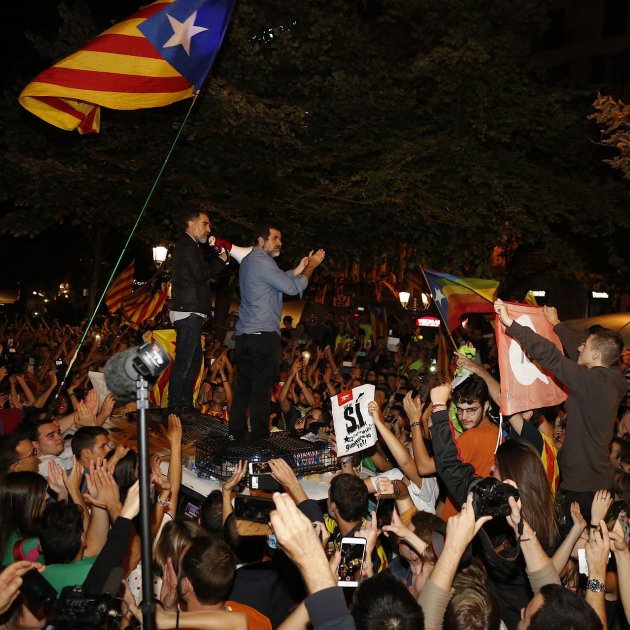Amnesty International has submitted a report to Spain's public prosecutors' office and the country's solicitor general stating that the 2019 Supreme Court verdict on the Catalan pro-independence leaders Jordi Sànchez and Jordi Cuixart violates their right to the freedom of expression and peaceful assembly, and argues that they should be released immediately.
The new document, reiterating the view which Amnesty expressed last year - but which was ignored - has been released just as the Spanish Constitutional Court has accepted appeals by the jailed Catalan leaders asking for their sentences to be declared null and void on constitutional grounds. Amnesty repeats its assertion that the offence of sedition under which Sànchez and Cuixart were imprisoned is a vaguely defined crime in the Spanish penal code and it once again calls for Spain to release the two men.
The human rights organization explains in its new Spanish-language report why it considers the definition and interpretation of sedition to be contrary to the principle of legality. The application of this offence to the case of Jordi Sànchez and Jordi Cuixart is, says Amnesty, a disproportionate restriction of their rights to freedom of expression and peaceful assembly. The law does not meet the requirements that international human rights instruments, such as article 21 of the International Covenant on Civil and Political Rights and article 11.2 of the European Convention on Human Rights, establish as just bases for imposing restrictions in this area.
"The definition of the criminal offence of sedition must be substantially revised to ensure that it does not unduly criminalize the exercise of freedom of expression and peaceful assembly, nor that it imposes disproportionate penalties on acts of peaceful civil disobedience," said Esteban Beltrán, director of Amnesty International Spain.
Another major concern of Amnesty International focuses on the fact that the Supreme Court, in its sentence last October, linked the seriousness of the crime to the fact that opposition to compliance with a court order was "massive or widespread." This ruling opens the door to the possibility of the authorities imposing an illegitimate limit on the number of people who can simultaneously exercise their right to protest peacefully, which could have a paralyzing effect on ordinary citizens, preventing them from participating in peaceful protests without fear.
International human rights law protects peaceful civil disobedience and says that restrictions on the right to peaceful assembly must be provided for in law and must be necessary and proportionate to a specific public interest, the organization notes. It also points out that a demonstration does not lose its peaceful character because some illegality is committed or because a few protesters make use of violence.
In November 2019, a month after the Supreme Court's conviction of "the Jordis" along with seven other Catalan pro-independence leaders for sedition and other offences, Amnesty International stated that the use of the sedition law breached the principle of legality and specifically called for the immediate release of Sànchez and Cuixart.
